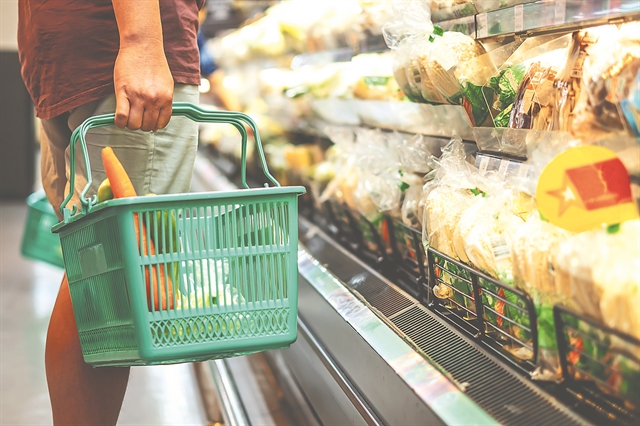
Household basket: Greek consumers win but inflation is still around
The measure appears unable to reverse food inflation
More than half of consumers are in favor of the much-discussed “household basket” (research by the Athens Chamber of Commerce), revealing that high prices in basic necessities no longer only concerns the segment of the population with low incomes. However, even so, the “basket” cannot reverse food inflation, as evidenced by the relevant sectoral index, which in November pegged in at+16% on an annual basis and on a monthly basis at +0.9%.
“However, it can contain it” maintains the Ministry of Development and Investments, Adonis Georgiadis, stressing that “never and none of us claimed that the “basket” will extinguish inflation”, while as he estimated that high prices will also be present in 2023 although a de-escalation of prices is expected.
Price reductions
If one shops only from the products that constitute the “household basket“, which, according to the minister, is in fact addressed only to the most vulnerable households, they will have a profit of €15.32/week or 66.40 euros/month or 796.74 euros/year, an amount corresponding to 1.12 basic salaries. The profit increases if the consumer excludes the online supermarkets participating in the initiative (efood, wolt market and efresh.gr), reaching 15.58 euros/week, 67.52 euros/month and 810.28 euros/year, which is 1.14 basic salaries. And the reason is that the digital shelves are mainly home to branded and therefore more expensive products, in contrast to the “baskets” of physical stores, which have a large percentage of cheaper private label products.
It is noted that the average value of the “basket” in the first six weeks fell from 124.62 euros to 109.08 euros, i.e. a decrease of 12.47%.
Given that the “basket” measure expires on March 31, 2023, if it is not extended, which Mr. Georgiadis left open, the profit is limited by 60% on an annual basis, as calculated by the ministry. In any case, however, the actual impact of the “basket” on inflation and thus on the consumer’s pocket cannot yet be measured. “It will take a much longer period of time and a much more thorough scientific analysis to take it seriously,” noted the minister. At the same time, the increased sales of the products within the “basket”, even more than 60% on average, depending on the product and its price level, have particularly worried the Greek food industry, as it is starting to affect sales of branded products that are outside the “basket”.
Ακολουθήστε το in.gr στο Google News και μάθετε πρώτοι όλες τις ειδήσεις









































 Αριθμός Πιστοποίησης Μ.Η.Τ.232442
Αριθμός Πιστοποίησης Μ.Η.Τ.232442